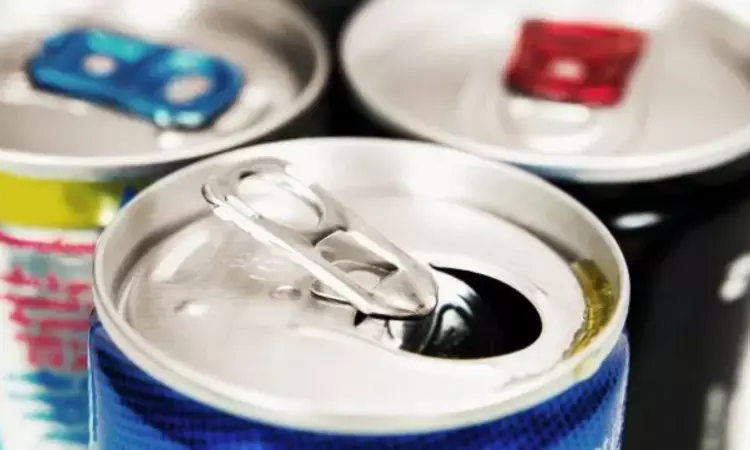- Home
- Medical news & Guidelines
- Anesthesiology
- Cardiology and CTVS
- Critical Care
- Dentistry
- Dermatology
- Diabetes and Endocrinology
- ENT
- Gastroenterology
- Medicine
- Nephrology
- Neurology
- Obstretics-Gynaecology
- Oncology
- Ophthalmology
- Orthopaedics
- Pediatrics-Neonatology
- Psychiatry
- Pulmonology
- Radiology
- Surgery
- Urology
- Laboratory Medicine
- Diet
- Nursing
- Paramedical
- Physiotherapy
- Health news
- Fact Check
- Bone Health Fact Check
- Brain Health Fact Check
- Cancer Related Fact Check
- Child Care Fact Check
- Dental and oral health fact check
- Diabetes and metabolic health fact check
- Diet and Nutrition Fact Check
- Eye and ENT Care Fact Check
- Fitness fact check
- Gut health fact check
- Heart health fact check
- Kidney health fact check
- Medical education fact check
- Men's health fact check
- Respiratory fact check
- Skin and hair care fact check
- Vaccine and Immunization fact check
- Women's health fact check
- AYUSH
- State News
- Andaman and Nicobar Islands
- Andhra Pradesh
- Arunachal Pradesh
- Assam
- Bihar
- Chandigarh
- Chattisgarh
- Dadra and Nagar Haveli
- Daman and Diu
- Delhi
- Goa
- Gujarat
- Haryana
- Himachal Pradesh
- Jammu & Kashmir
- Jharkhand
- Karnataka
- Kerala
- Ladakh
- Lakshadweep
- Madhya Pradesh
- Maharashtra
- Manipur
- Meghalaya
- Mizoram
- Nagaland
- Odisha
- Puducherry
- Punjab
- Rajasthan
- Sikkim
- Tamil Nadu
- Telangana
- Tripura
- Uttar Pradesh
- Uttrakhand
- West Bengal
- Medical Education
- Industry
Energy drinks consumption linked to substantial and detrimental implications for diabetics

Nigeria: The popularity of energy drinks are rising every year, specifically among young adults such as college students, despite studies showing their harmful impact on health.
A recent study, published in Discoveries journal has shed light on the impact of short-term energy drink consumption on apolipoprotein B, plasma glucose, pulse rate, and body mass index (BMI) among students.
Emmanuel Chukwuemeka Ogbodo, Nnamdi Azikiwe University, Awka, Nigeria, and colleagues showed that consumption of energy drinks causes significant alterations in pulse rate, BMI, apolipoprotein B, and plasma glucose levels which may have important clinical consequences for energy drink consumers.
They suggested that public should be educated on the effects of energy drink intake on human health, specifically in the case of people with diabetes. They added that if it is impossible to avoid energy drinks consumption, they should be used in moderation. More research into the impact of energy drinks on cardiometabolic functions should be conducted in order to better understand and unravel the mechanism behind the current findings presented in this study
The research team chose two representative types of energy drinks in Nigeria, namely predator and fearless in order to test the effect of energy drink consumption on triglyceride, serum apolipoproteins, and plasma glucose levels in students. These energy drinks are brand names of non-alcoholic beverages aimed to provide energy.
The study included 30 students who were apparently healthy male human subjects aged 18 to 30 years and gave informed consent to the research work. They were randomly selected and divided into two groups: Group A (fearless energy drink consumers, n=15) and Group B (predator energy drink consumers, n=15).
The study led to the following findings:
- There was a significant reductions in pulse rate (86.00±41.32 versus 78.87±27.72) and BMI (21.41±1.93 versus 21.7±12.02) as compared to baseline values after one month of "fearless energy drink" consumption.
- Plasma glucose levels were significantly higher (97.53±10.62 versus 88.80±11.33) and Apo B levels were significantly lower (21.41±1.93 versus 21.71±2.02) following two weeks of fearless energy drink consumption than in baseline.
- BMI and Apo B levels were significantly lower after two weeks of predator energy drink consumption, but plasma glucose levels were significantly higher after two weeks and one month of predator energy drink consumption, respectively.
- Triglyceride, systolic BP, diastolic BP, and Apo A levels did not differ significantly in both fearless and predator energy drink consumers at baseline and after the study period respectively.
The study found significant reductions in BMI and Apolipoprotein B, and significant increases in plasma glucose levels, but apolipoprotein A1 and triglyceride levels remained identical before and after one month of fearless and predator energy drink use.
"After one month, the consumption of fearless energy drink led to a considerable reduction in pulse rate," the researchers wrote. "As a result, while short-term intake of predator and fearless energy drinks may have good impacts on cardiovascular health, it may have substantial and detrimental implications for diabetics."
"More research should be conducted into the impact of energy drinks on cardiometabolic functions in order to better understand and unravel the mechanism behind the current findings presented in this study," they concluded.
Reference:
Iheanacho, Munachimso Mariasonia, et al. "Short-term Energy Drink Consumption Influences Plasma Glucose, Apolipoprotein B, Body Mass Index and Pulse Rate Among Students." Discoveries (Craiova, Romania), vol. 10, no. 4, 2022, pp. e159.
Dr Kamal Kant Kohli-MBBS, DTCD- a chest specialist with more than 30 years of practice and a flair for writing clinical articles, Dr Kamal Kant Kohli joined Medical Dialogues as a Chief Editor of Medical News. Besides writing articles, as an editor, he proofreads and verifies all the medical content published on Medical Dialogues including those coming from journals, studies,medical conferences,guidelines etc. Email: drkohli@medicaldialogues.in. Contact no. 011-43720751


